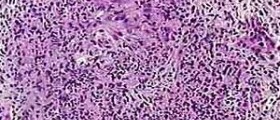Encephalitis is a rare medical condition that features with inflammation of the brain. It is most commonly caused by a viral infection. Encephalitis may range from mild to severe. Therefore, it is important to be identified on time, so that patients can be treated to avoid possible life-threatening complications.
Encephalitis Overview
Encephalitis can be caused by many different viruses such as herpes simplex, varicella zoster, adenovirus, cytomegalovirus and others. However, bacteria, fungi and parasites may also cause encephalitis. Other causes of the condition include autoimmune diseases and an allergic reaction to vaccinations.
Mild cases of encephalitis cause low grade fever, mild headache, low energy and poor appetite. However, in severe cases, encephalitis is accompanied by high fever, severe headache, drowsiness, confusion, disorientation, neck stiffness, nausea and vomiting, irritability, seizures and coma.
Treatment for Encephalitis
Treatment for encephalitis has three goals. They include stopping the progression and reversing the infection with anti-viral and other medications, managing immediate complications of encephalitis and preventing development of long-term complications.
Encephalitis patients are usually admitted to a hospital, in an intensive care unit. The patient’s vital signs such as blood pressure, heart rate, breathing and level of body fluids are closely monitored. Breathing can be supported with an oxygen mask while nutrition can be provided with a feeding tube.
Medications for Encephalitis
Acyclovir is the most commonly used antiviral drug for treatment of encephalitis. However, this drug is only effective against Herpex simplex virus which causes severe encephalitis. Treatment with acyclovir should start as soon as possible to decrease the risk of long-term complications and death.
However, if diagnostic tests reveal different causes of encephalitis, acyclovir is discontinued and other treatments are considered. Acyclovir may cause adverse effects such as headache, nausea, vomiting and diarrhea. Rarely, it may cause hallucinations, liver damage and decrease in white blood cell count.
High doses of corticosteroids are given by injections for treatment of post-infectious encephalitis to reduce brain swelling and pressure within the skull. However, corticosteroids may cause side effects such as nausea and vomiting, indigestion, increased appetite and rapid mood changes.
Immunosuppressants along with corticosteroids, immunoglobulin therapy and plasmapheresis are used in treatment of autoimmune encephalitis. Commonly used immunosuppressant for treatment of encephalitis is ciclosporin. This drug can cause side effects such as loss of appetite, nausea, vomiting, headache, high blood pressure, numbness and tingling, tremor, muscle pain and increased hair growth.
Symptoms of encephalitis are treated with anticonvulsants which control seizures, anti inflammatory drugs which reduce fever and sedatives which treat restlessness and irritability.

















Your thoughts on this
Loading...